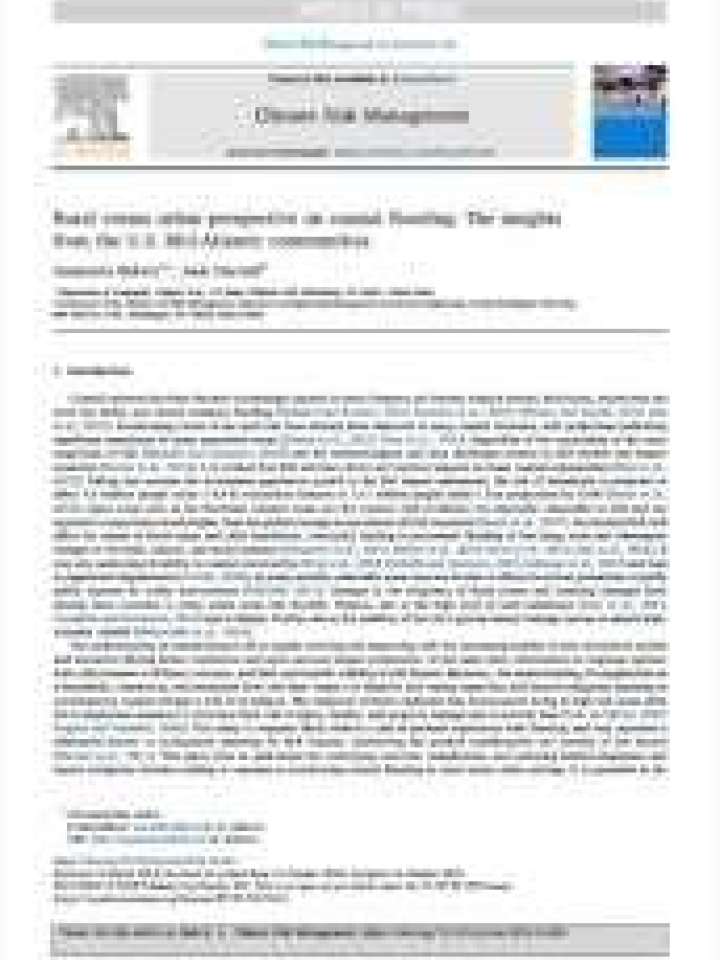Rural versus urban perspective on coastal flooding: The insights from the U.S. Mid-Atlantic communities
This paper aims to understand the underlying concerns, complexities, and reasoning behind adaptation and hazard mitigation decision-making in response to accelerating coastal flooding in rural versus urban settings. It is grounded in the assumption that different levels of urbanization and related cultural, sociodemographic, and economic contexts shape the coping capacity and resilience of different places. According to Scott and Gilbert (2007), urban settings are generally more reliant on the secondary and tertiary economic sectors, more affluent and wealthy, more diverse but with a lower sense of community, and more transient than rural areas. Rural communities are, on the other hand, more dependent on natural resources and physically isolated, and they have limited economic diversification, aging populations, and higher levels of poverty (NCA, 2014).
This paper identifies how local contextual factors shape risk perceptions, the level of concern about coastal flooding and its impacts, and consideration of different response options. It evaluates the level of concern with coastal hazards, adaptive and coping responses, attitudes about relocation, data gaps that may affect the propensity to act, and barriers to and opportunities for adaptation via personal, semistructured interviews with local officials and other stakeholders in coastal Maryland and Virginia.
Explore further
